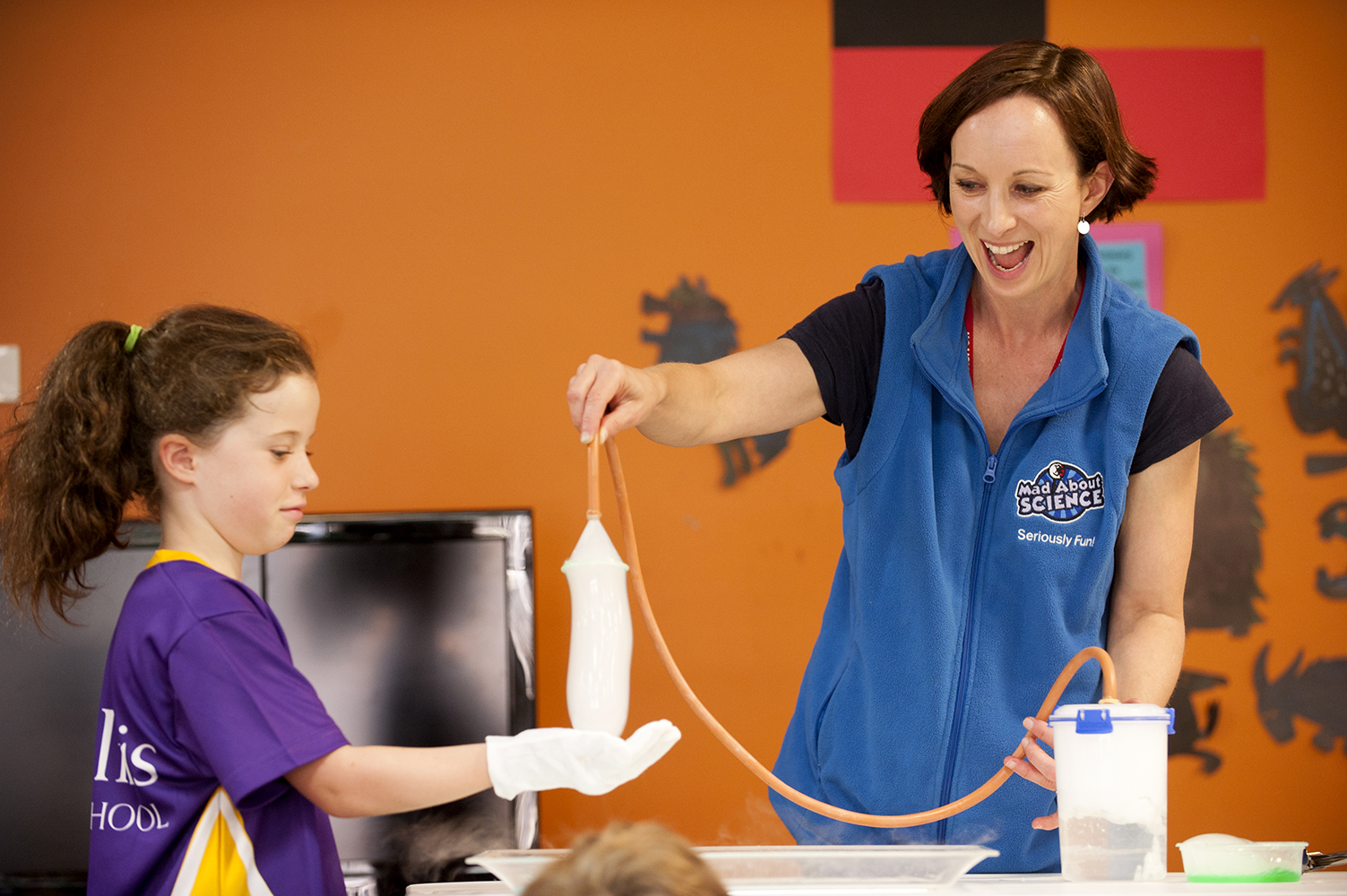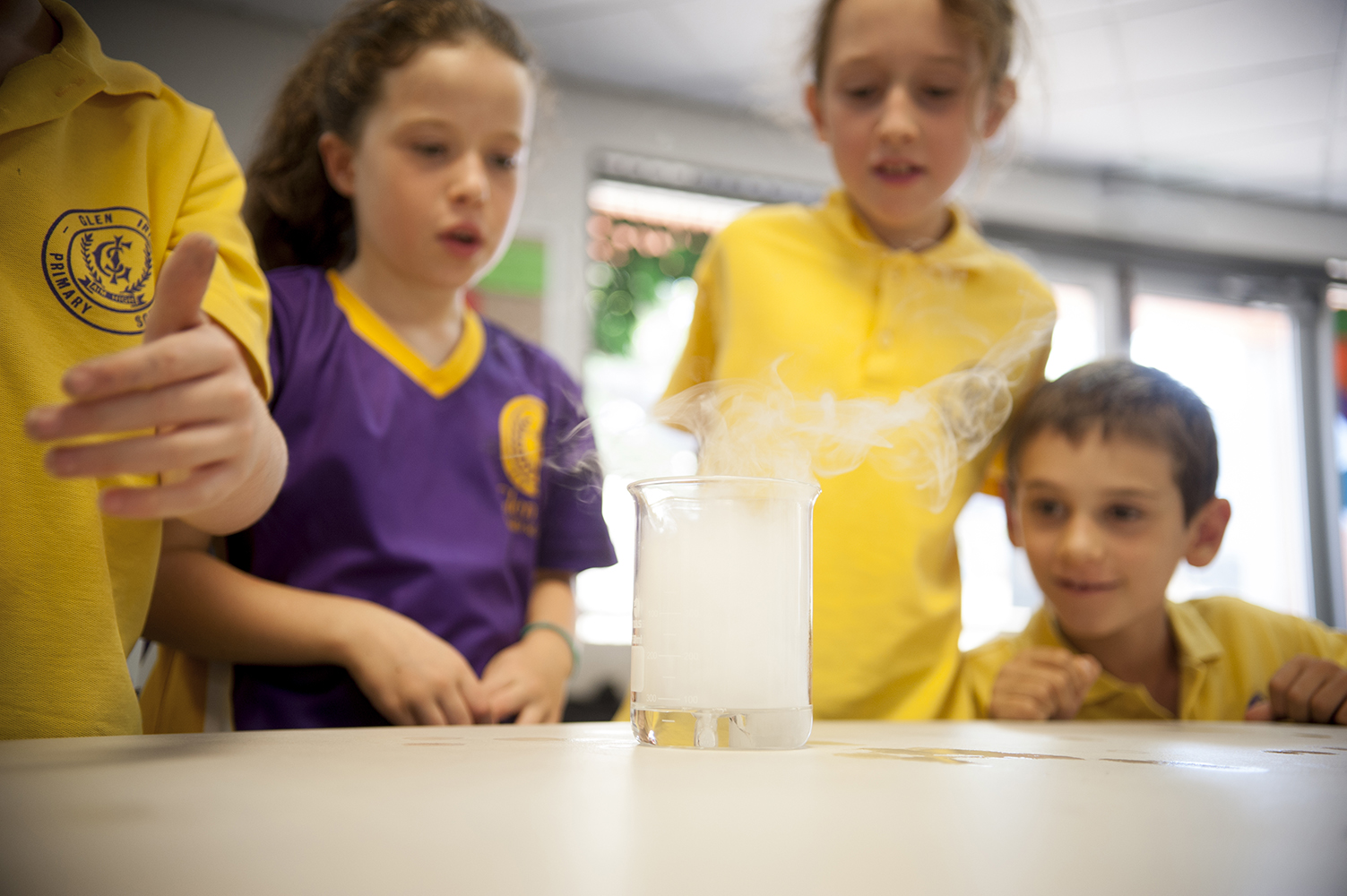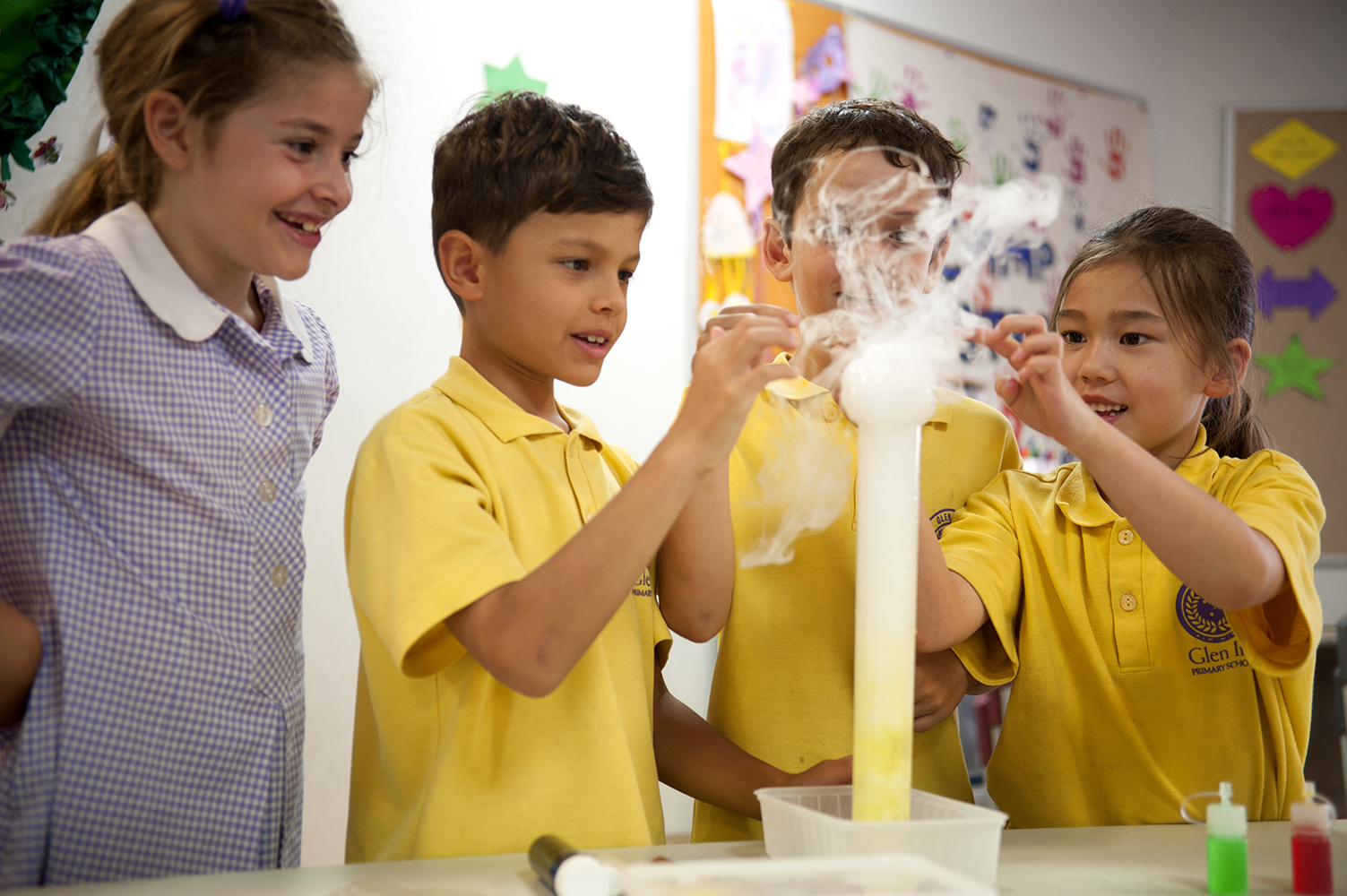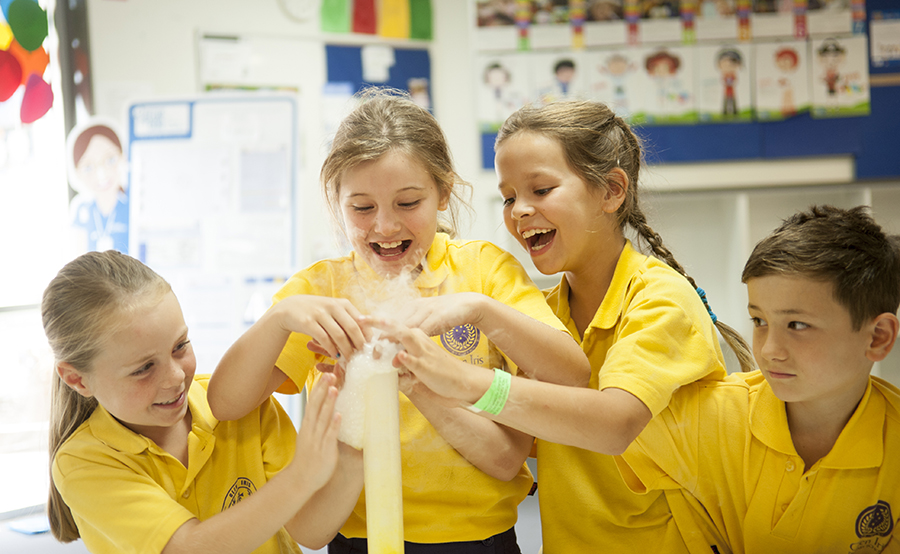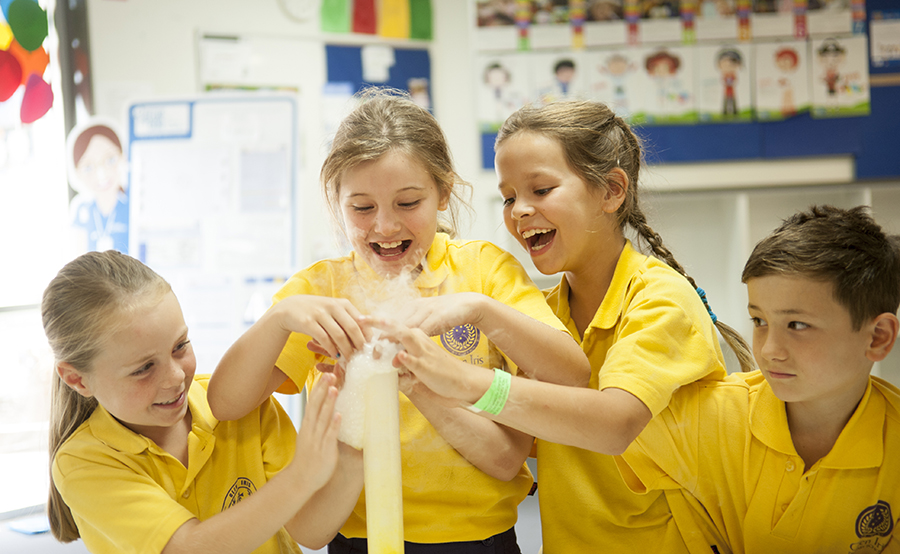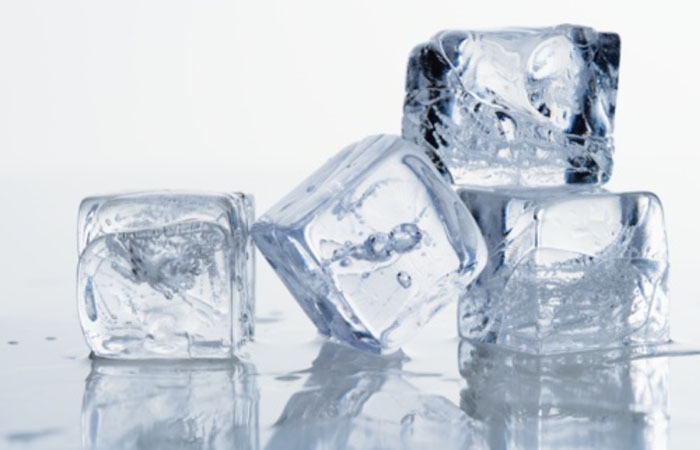Project Description
The Matter of Matter
Use the magic of dry ice to explore the three common states of matter – solids, liquids and gases. From everlasting bubbling fountains to cool chemical fire extinguishers. This session matters!
Level: Suitable for Year 3 through to Year 6.
Duration: Available in a 90 minute format only.
Numbers: Each workshop can cater to a maximum of 30 children. However, smaller groups have better access to equipment and the facilitator.
Surcharge: An additional surcharge of $80 plus GST applies to this topic for dry ice.
State: VIC, NSW & QLD
Learning Outcomes
Matter is anything that takes up space or has a mass.
Matter can be classified into three main states: solids, liquids, and gasses. Each state has different properties, shape and volume due to different atomic bonds.
Some matter can not be easily classified into the three main states. One example is non-Newtonian fluids.
Plasma is a highly energetic state of matter.
Matter changes between states when it is heated and cooled, and these changes are reversible.
Scientists identify invisible gasses in a number of ways, including using a flame to see how it will respond in the presence of the gas. Carbon dioxide gas extinguishes fire.
Dry ice is solid carbon dioxide and responds to heat by sublimating.
Laboratory techniques, such as organisation, accuracy, measurement, use of equipment, and safety.
Scientific method and building science vocabulary.
Activities
Discussion of matter, and demonstration of how gas quickly changes shape and volume.
Small group classification of matter.
Demonstration of non-Newtonian matter, and how its properties change with different forces.
Demonstration of how matter changes state when heat is applied and removed.
Demonstration of how plasma is formed.
Impressive dry ice demonstrations.
Students create an everlasting bubbling fountain with dry ice.
Students identify the gas that dry ice turns into using a flame.
Students identify the gas that is produced during a chemical reaction between an acid and a base using a flame.
Memorable cauldron and boo bubble demonstration.
Victorian Curriculum Links
A change of state between solid and liquid can be caused by adding or removing heat (VCSSU059)
Solids, liquids and gases behave in different ways and have observable properties that help to classify them (VCSSU076)
Changes to materials can be reversible, including melting, freezing, evaporating, or irreversible, including burning and rusting (VCSSU077)
Compare results with predictions, suggesting possible reasons for findings (VCSIS070)
Communicate ideas and processes using evidence to develop explanations of events and phenomena and to identify simple cause-and-effect relationships (VCSIS088)
Safely use appropriate materials, tools, equipment and technologies (VCSIS067)
Participate in guided investigations, including making observations using the senses, to explore and answer questions (VCSIS051)
NSW Curriculum Links
Describes how adding or removing heat causes a change of state (ST2-6MW-S)
Identifies that objects are made of materials that have observable properties (STe-4MW-ST)
Identifies that materials can be changed or combined (ST1-6MW-S)
Plans and uses materials, tools and equipment to develop solutions for a need or opportunity (ST3-2DP-T)
Questions, plans and conducts scientific investigations, collects and summarises data and communicates using scientific representations (ST2-1WS-S)
Australian Curriculum Links
A change of state between solid and liquid can be caused by adding or removing heat (ACSSU046)
Solids, liquids and gases have different observable properties and behave in different ways (ACSSU077)
Changes to materials can be reversible or irreversible (ACSSU095)
Compare results with predictions, suggesting possible reasons for findings (ACSIS216)
Communicate ideas and processes using evidence to develop explanations of events and phenomena and to identify simple cause-and-effect relationships (ACSIS093)
With guidance, plan and conduct scientific investigations to find answers to questions, considering the safe use of appropriate materials and equipment (ACSIS065)
Participate in guided investigations, including making observations using the senses, to explore and answer questions (ACSIS025)

